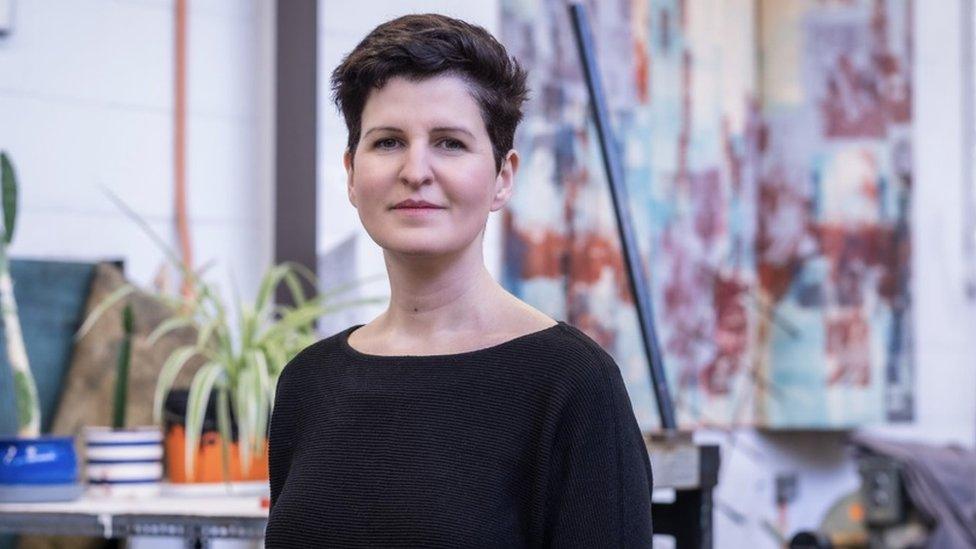Loughborough lecturer launches exhibition to make sense of IVF
- Published

El Morgan, who works at Loughborough University in Leicestershire, gave birth to twins in 2019
A fine art lecturer who underwent IVF treatment before having twins has launched an exhibition to make sense of her experiences.
El Morgan, who works at Loughborough University in Leicestershire, gave birth to twins in 2019.
However, she pays annually to keep frozen embryos from her 2018 IVF cycle stored in a Nottinghamshire facility.
Her exhibition, called Tale of the Frozen Bits, looks at the people and animals involved in sustaining embryos.
She said she had begun researching the subject while undergoing IVF treatment.
'Extraordinary and interesting'
"I viewed IVF as an art project in a bid to deal with the physical, financial, and emotional stress of it," she said.
"It started when I was interested in finding out how the fertility drugs I was injecting myself with every night were made and I found out it was originally sourced from nuns' urine.
"I wanted to know how this happened and it turned out hundreds of nuns were told by the Vatican in the late 1950s to donate their urine to a fertility company.
"It's far more extraordinary and interesting than I ever thought."
The exhibition uses sculpture, sound, video, print and text work to explore the surprising history of fertility drugs.
She said her research findings helped her feel less alone in the IVF process and hoped the exhibition will do the same for others undergoing treatment.
"When you're going through the fertility process, you feel like the pressure is on you as an individual and on the woman's body", she said.
"When I found out about the people and animals involved in fertility drugs, I thought 'oh my goodness, it's not just me doing this on my own'."
A successful IVF cycle can result in multiple embryos, and some people choose to freeze the extra embryos they do not use in case they wish to undergo another cycle in the future.
"I don't know how to make sense of these frozen embryos. I've never seen them, but I pay for them," she added.
"So I wanted a way to bring them into reality, something that makes sense of having some relationship to them and makes the invisible visible."
The free exhibition runs at Castlefield Gallery, in Manchester, until 12 March.

Follow BBC East Midlands on Facebook, external, on Twitter, external, or on Instagram, external. Send your story ideas to eastmidsnews@bbc.co.uk, external.